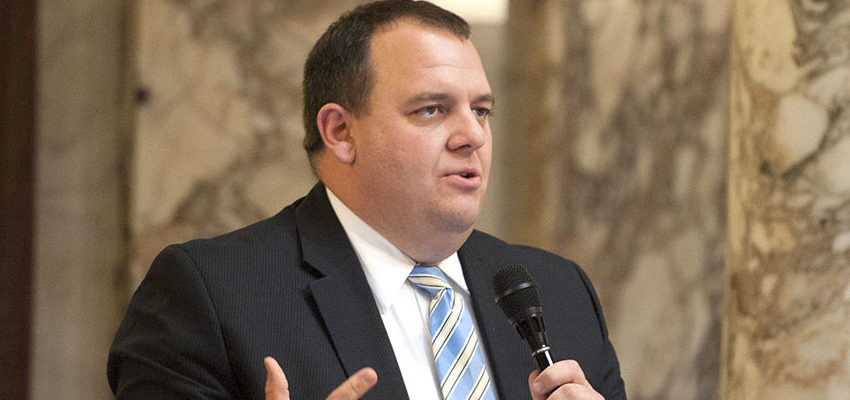
MacIver News Service | June 20, 2019
By M.D. Kittle
MADISON, Wis. — And then there were two.
State Sen. Dave Craig confirmed this morning on the Jay Weber Show that he will not vote for the Republican biennial budget plan.
“The budget fails to do what it most needs to do, truly prioritize state spending in a way that’s most responsible for Wisconsin families and to put us on solid ground for the future,” the Big Bend Republican told MacIver News Service in a follow-up interview.
Craig joins state Sen. Steve Nass (R-Whitewater), who on Wednesday announced he could not support his party’s budget bill.
“I simply can’t deceive the taxpayers by voting for a budget that creates a significant structural deficit, generates the largest property tax hikes in a decade, contains unsustainable levels of excessive spending and authorizes an extremely offensive new vehicle miles-driven tax on motorists starting in 2023,” Nass said in a press release. “This is not a conservative budget by any reasonable analysis.”
The budget, passed earlier this month by the Republican-controlled Joint Finance Committee, does come more than $2 billion below Democratic Gov. Tony Evers’ $84. 2 billion two-year budget plan. The GOP version jettisons Evers’ Medicaid expansion plan, the foundation of the liberal’s budget, and it does not include a controversial gas tax hike and accompanying indexing. It also includes a substantial tax cut, targeted to middle-income earners.
But the JFC budget bill spends $81.6 billion overall over the next two years, a nearly 8 percent increase from the $75.7 billion 2017-19 budget, all funds considered.
That level of spending is simply too much for some fiscal hawks.
With a 19-14 majority, the Republican-controlled Senate can stand but one more defector before the JFC budget is sunk. Much appears to be riding on state Sen. Chris Kapenga (R-Delafield), who has expressed his displeasure with elements of the budget.
Capital insiders tell MacIver News Service that a controversial vehicle mileage-fee study committee initiative may be removed from the budget in whole or in part to help win support of critical conservatives. The measure would create a study committee to come up with recommendations on how to implement a motor vehicle mileage fee to possibly replace the state’s dependency on dwindling gas tax revenue. The committee would determine means of motorists reporting, which could ultimately include a government-installed monitoring device.
That’s a non-starter for some conservatives.
“It’s a ridiculous provision in the first place,” Craig said. “Not only do you have the bad government consequences of a small body of legislators empowered to enact a tax increase, you have serious privacy concerns.”
The measure, as it stands, would give the 16-member Joint Finance Committee ultimate authority over the mileage fee study committee recommendations, bypassing the full Legislature.